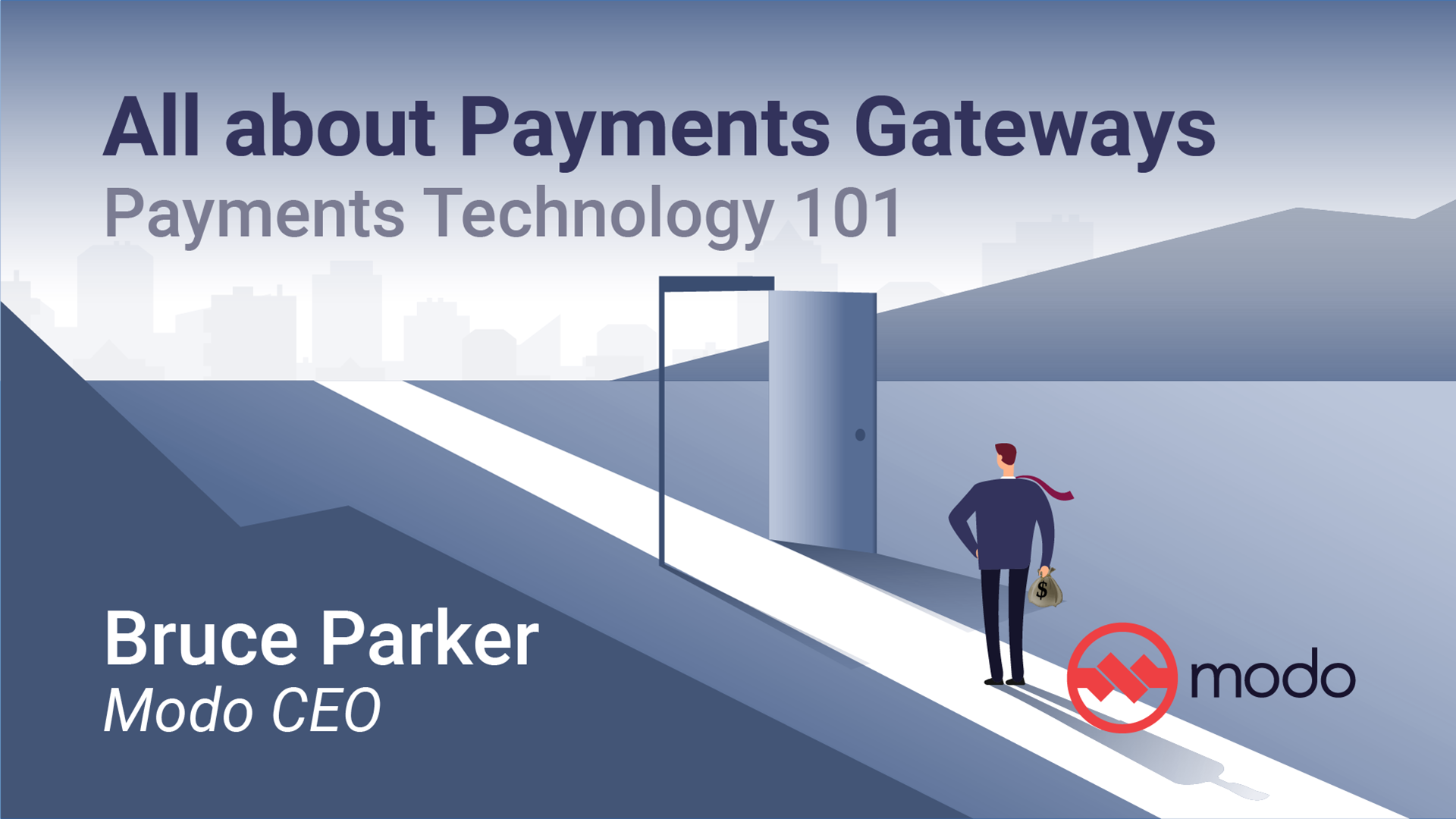Modo CEO, Bruce Parker, discusses a core piece of payments technology, the Payments Gateway. Watch the video above to learn about payments gateways, where they are going, what their limitations are, and how , and how to choose the right one for your payments stack.
What is a payments gateway?
A payments gateway is something that's been around for a long time, but it typically came on the scene primarily to help people connect to their payments processor online instead of through a terminal or in-store. So gateways originally were just "Well, how do you do online or internet transactions?" They've since grown up, and people typically think about payments gateways today as a means by which to access more than one payments processor or payments service provider.
What are some examples of popular payment gateways?
Leading payments gateways are now available from practically every major processor as well as networks and so on. It's a pretty ubiquitous offering now - there's Cybersource from Visa, Mastercard has a payments gateway, Worldpay has a payments gateway, First Data has a payments gateway. They all have different brand names and varying levels of functionality. But typically it's how to access one or more payments processors, starting with cards and then sometimes adding a few other methods as well, and making those available through a single interface.
Why would I need a payments gateway?
Over the last several years, most payments gateways either were acquired by a payment service provider or a processor or a network, or they were created by those same organizations. So in some senses the original value proposition of, "Connect to us and we'll connect you to everything else and we will remain objective," has been lost a little bit. There's not sort of unfair routing or things like that going on, but it is absolutely the case that it is no longer subjective as it once was.
What are the downsides of a payments gateway?
One of the major downsides of a payments gateway is they may or may not support the payment methods that you like. One of the conversations we're super familiar with because we've heard it a number of times is support for Alipay. Most payments gateways here in the United States don't actually support Alipay, and that becomes problematic for those who decide that that's an important payment method for their customers. So if it's missing either a payment method or it's missing access to a particular country or a particular processor who may have very specific features for your business or for your offering, that's really where a gateway kind of falls down and that promise of, "Just one connection to them and they'll give you access to anything you might need," tends to fall away.
How do I decide if a payments gateway is right for me?
Payments gateways are great solutions for folks that already know who they need to connect to and that they know for sure that payment gateway A. Has access to those payment service providers, and B. Will continue to provide access to those payment service providers. Payments gateways may not be as good a fit if you need to retain control over your payments flow or you're trying to do a customer experience that you would like to be differentiated or, in particular, if you have proprietary forms of payment - loyalty systems, offer systems, gift systems - specific to you or specific to your industry. Gateways can be less effective in those situations.
Deciding between gateways is generally simply a matter of do they have access to the payment services provider that you're looking for - whether that's card processors, whether that's countries, or that's very specific payment methods like PayPal, like Klarna, like Alipay. That's typically how people decide about gateways.
Are payments gateways right for everyone?
Oftentimes people ask, "Is Adyen a gateway, is Stripe a gateway, is Braintree a gateway?" And by the classic definition, actually, the answer to that is, "no." They provide payment services, and sometimes they do that on an aggregated basis, sometimes they're doing a lot of that more themselves. But the difference is gateways at one point never did hold, touch, or move money. And each of those organizations do so they're really more properly a payment service provider rather than a gateway in the traditional sense.
Watch other related videos
